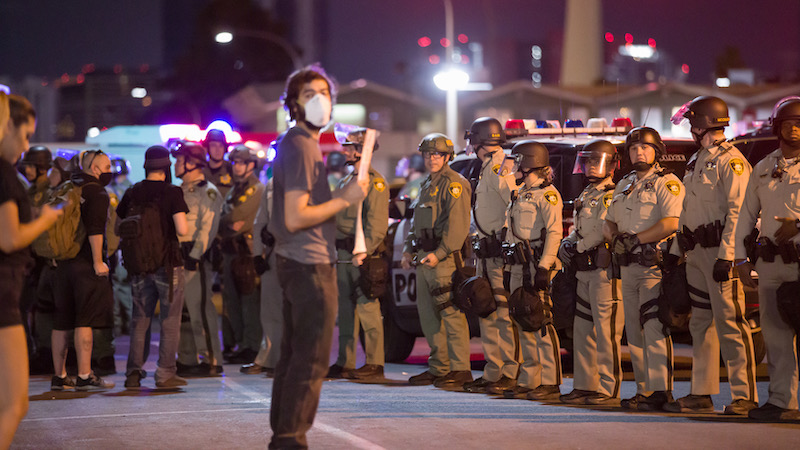I’ve written about the TV show “The Walking Dead” on this blog before. It may seem odd that I should be writing about a TV series on the zombie apocalypse for a blog whose focus is faith, economics, and public policy. That’s because it is. And yet, once again the show recently proved itself relevant to these themes—and even prescient about the challenges we face in the real world.
The show depicts a post-apocalyptic world where flesh-eating zombies roam and desperate people join forces to survive. Beneath all of the blood and guts, it is a story of people trying to live in a broken, dangerous world. Recurring questions arise: Will the characters persevere, as difficult and painful as it may be in an ugly reality? Do they fundamentally change who they are to adapt to a changed world? What are they willing to sacrifice in order to survive?
As last week’s terrorist attacks in Paris remind us, our world is not so different. Evil exists, and it always will this side of Heaven. As miserable as it is, we are forced to reckon with the reality of a dangerous world. We are faced with similar questions: What measures should we take to keep our nation safe? What are we willing to sacrifice in order to survive?
On this week’s episode of “The Walking Dead,” a new character to the show commented, “People will trade anything for safety.” Of course, the things that they trade away are typically not tangible. More often, they are metaphysical: convictions, principles, and virtues. When the apocalypse hit, many bands of people soon became cut-throat and conniving, doing whatever it took to survive. Truly, people became willing to trade anything for safety. The subtle message of the show is that making such a trade is a mistake.
[pq]In some respects, our way of life is as precious as life itself.[/pq]
In dark times like these, we should take a step back and think carefully about what we value as a society. Certainly, survival and safety are important. But so are compassion, freedom, and the many other things that are fundamental to our way of life.
This means that policy decisions are not so clear cut. We must find a delicate balance between the different values and goods that we hold dear—and which are unfortunately sometimes at odds. And though our policy responses must be prompt, this also means that they should not merely be reflexive. Especially in times of crisis, we must be clear-headed rather than emotional, with the big picture—not just the circumstances in front of us—in mind.
Bottom line, we must not become a people who are willing to trade anything for safety. No matter how hard we try, complete safety is a farce, and many of the things that we might trade away are too valuable to give up. In some respects, our way of life is as precious as life itself.



